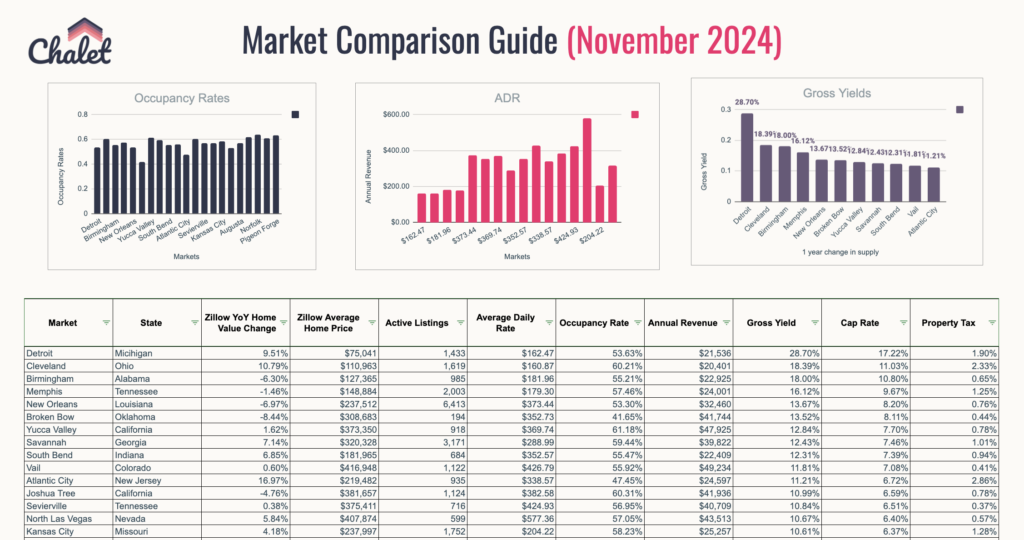Introduction
Bradenton, FL, a picturesque city on Florida’s Gulf Coast, has become an attractive destination for tourists and investors alike. With its beautiful beaches, vibrant arts scene, and close proximity to major attractions like Sarasota and Tampa, it’s no wonder that short-term rentals, often listed on platforms like Airbnb, have flourished here.
However, as with many popular tourist destinations, Bradenton has implemented regulations to manage the impact of these rentals on the community. This blog post delves into the specifics of these regulations, helping potential Airbnb hosts navigate the legal landscape in Bradenton.
Overview of Short-Term Rental Regulations in Bradenton
Bradenton’s approach to short-term rental regulation is designed to balance the benefits of tourism with the needs and concerns of local residents. The regulations cover various aspects, including licensing, zoning, and operational requirements. Understanding these regulations is crucial for anyone looking to operate an Airbnb in Bradenton.
Licensing Requirements
In Bradenton, all short-term rental operators must obtain a business tax receipt and a certificate of use. Here are the steps involved:
- Business Tax Receipt: This is essentially a business license that must be renewed annually. It involves paying a fee and providing details about the rental property.
- Certificate of Use: This certificate ensures that the property complies with local zoning laws and building codes. It’s a one-time requirement unless there are significant changes to the property or its use.
Top 200 Airbnb Rental Markets

Instantly compare top 200 short-term (Airbnb) rental markets in the US
Zoning Regulations
Bradenton has specific zoning regulations that dictate where short-term rentals can operate. Generally, these properties are allowed in residential and mixed-use zones, but there are restrictions in place to preserve the character of certain neighborhoods. Key points include:
- Residential Zones: Short-term rentals are permitted in residential zones, but there may be limits on the number of guests and duration of stays to minimize disruption to neighbors.
- Commercial and Mixed-Use Zones: These areas typically have fewer restrictions, making them more favorable for Airbnb operators.
Operational Requirements
Operational requirements are designed to ensure the safety and well-being of guests and the community. These include:
- Occupancy Limits: There are limits on the number of occupants based on the size of the property. Typically, this is two guests per bedroom, plus two additional guests.
- Safety Standards: Properties must comply with local safety standards, including smoke detectors, fire extinguishers, and adequate egress routes.
- Noise and Nuisance: Operators are responsible for ensuring that guests do not create excessive noise or engage in activities that could disturb the neighbors. This is particularly enforced in residential zones.
Registration with the State
In addition to local requirements, short-term rental operators in Bradenton must register with the Florida Department of Business and Professional Regulation (DBPR). This involves:
- Obtaining a Vacation Rental License: This state-level license is required for all short-term rentals in Florida. It ensures compliance with state laws and safety regulations.
- Collecting and Remitting Taxes: Operators must collect and remit state sales tax and local tourist development tax on rental income. This can be done through the Florida Department of Revenue.
Enforcement and Penalties
Bradenton has a robust enforcement mechanism to ensure compliance with short-term rental regulations. Non-compliance can result in significant penalties, including:
- Fines: Operators can be fined for operating without the necessary licenses or for violating operational requirements.
- Suspension or Revocation of Licenses: Persistent violations can lead to the suspension or revocation of the business tax receipt and certificate of use, effectively shutting down the rental operation.
- Legal Action: In severe cases, the city may pursue legal action against non-compliant operators.
Community and Stakeholder Involvement
Bradenton’s approach to regulating short-term rentals involves input from various stakeholders, including local residents, property owners, and tourism officials. Public hearings and community meetings are often held to address concerns and update regulations as needed.
Resources for Compliance
For those looking to navigate the regulatory landscape, several resources are available:
- City of Bradenton Official Website: Provides detailed information on local regulations, licensing procedures, and contact information for relevant city departments.
- Florida Department of Business and Professional Regulation (DBPR): Offers guidance on state-level requirements, including vacation rental licensing and tax collection.
- Local Real Estate and Legal Experts: Consulting with professionals who specialize in short-term rental compliance can help ensure that you meet all local and state requirements.
Conclusion
Operating a short-term rental or Airbnb in Bradenton, FL, can be a lucrative endeavor, but it’s essential to understand and comply with local and state regulations. By obtaining the necessary licenses, adhering to zoning and operational requirements, and staying informed about any changes in the law, you can successfully manage your rental property while contributing positively to the community. Whether you’re a seasoned investor or a new host, following these guidelines will help you navigate the complexities of short-term rental regulation in Bradenton.

